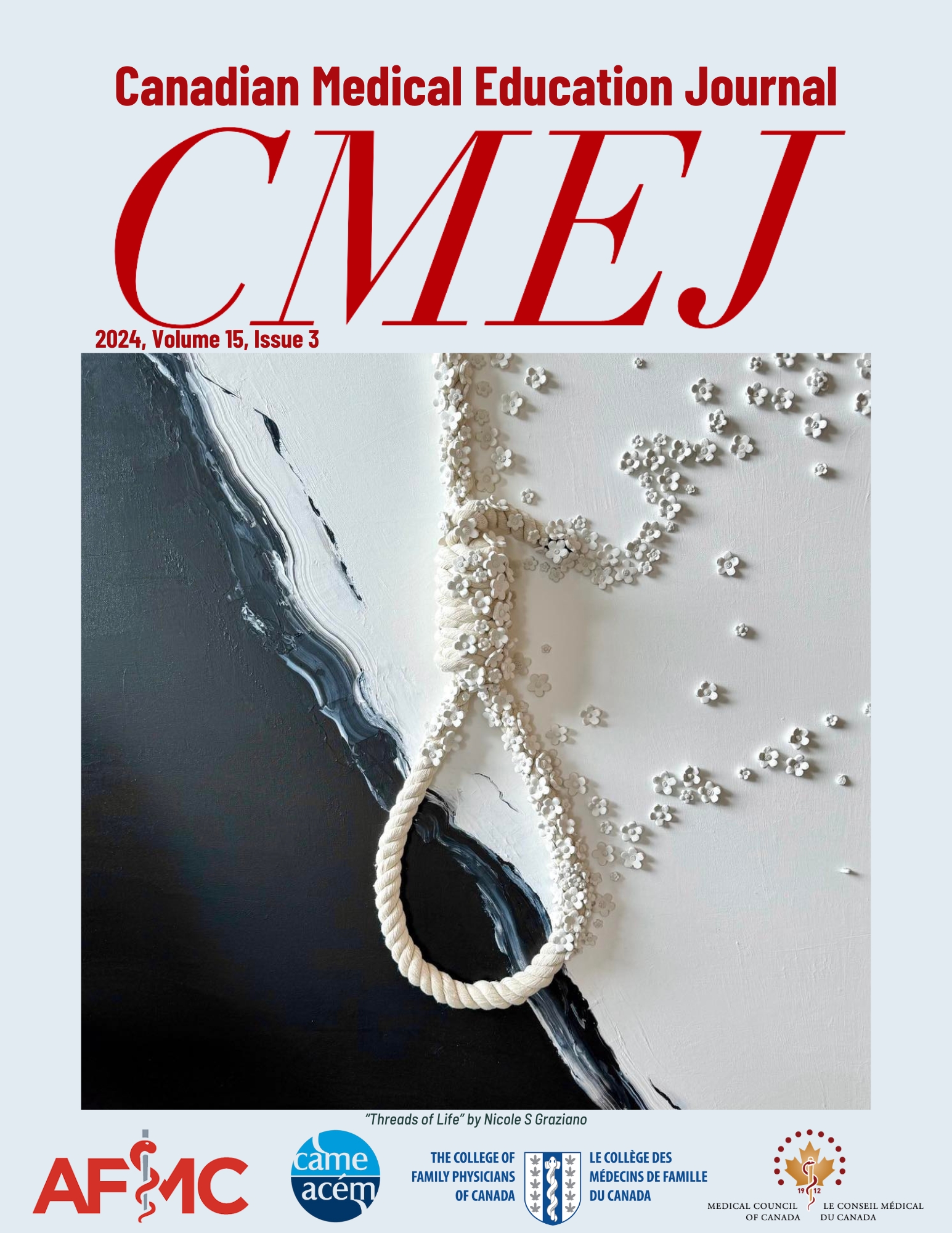Resident and teacher perceptions of the preceptor field note: a qualitative analysis
DOI:
https://doi.org/10.36834/cmej.77182Abstract
Implication Statement
Assessment of clinical teachers is a requirement by family medicine residency programs in Canada. This facilitates feedback to teachers and ensures the curriculum is delivered in an efficient and safe way. To protect resident confidentiality, preceptors often receive their teaching evaluations months to years later. Teachers have requested shorter feedback loops, greater numbers, and more frequent assessments to improve their skills.
The preceptor field note (PFN) is a tool that allows learners to evaluate teachers during a single encounter providing more frequent and immediate feedback. This study documents teachers’ and residents’ initial impressions of the first iteration of the PFN.
References
Bandiera G, Fung K, Iglar K, et al. Best practices in teacher assessment. University of Toronto; 2010 p. 1–41. Available from: https://pgme.utoronto.ca/wp-content/uploads/2016/07/BestPracticesTeacherAssessment2010.pdf
University of Toronto. MD Program assessment and evaluation Personal communication. 2022 11 08.
Rojas D, SG. Review of the MD and Post-MD teacher effectiveness assessment tools completed by learners. University of Toronto. 2019 Dec p. 1-16.
Donoff MG. Field notes: assisting achievement and documenting competence. Can Fam Physician. 2009 Dec;55(12):1260–2, e100-102.
Lawrence K, van der Goes T, Crichton T, et al. Continuous Reflective Assessment for Training (CRAFT): a national programmatic assessment model for family medicine. College of Family Physicians of Canada; 2018 p. 1-17. Available from: https://www.cfpc.ca/CFPC/media/Resources/Faculty-Development/CRAFT_ENG_Final_Aug27.pdf
Walsh A, Antao V, Bethune C, et al. Fundamental teaching activities in family medicine: a framework for faculty development. College of Family Physicians of Canada; 2015. Available from: https://www.cfpc.ca/CFPC/media/Resources/Education/FTA_GUIDE_TM_ENG_Apr15_REV.pdf
Braun V, Clarke V. Using thematic analysis in psychology. Qual Res Psychol. 2006 Jan;3(2):77–101. https://doi.org/10.1191/1478088706qp063oa DOI: https://doi.org/10.1191/1478088706qp063oa
Downloads
Published
Issue
Section
License
Copyright (c) 2023 Milena Markovski, Vyshnave Jeyabalan, Robert Stephens, Lana Kiehn, Jonathan Lockwood, Danyal Saeed, Risa Bordman

This work is licensed under a Creative Commons Attribution-NonCommercial-NoDerivatives 4.0 International License.
Submission of an original manuscript to the Canadian Medical Education Journal will be taken to mean that it represents original work not previously published, that it is not being considered elsewhere for publication. If accepted for publication, it will be published online and it will not be published elsewhere in the same form, for commercial purposes, in any language, without the consent of the publisher.
Authors who publish in the Canadian Medical Education Journal agree to release their articles under the Creative Commons Attribution-Noncommercial-No Derivative Works 4.0 Canada Licence. This licence allows anyone to copy and distribute the article for non-commercial purposes provided that appropriate attribution is given. For details of the rights an author grants users of their work, please see the licence summary and the full licence.











